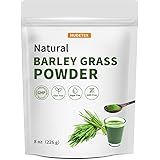In our fast-paced world, many of us experience stress as an unwelcome constant. This persistent pressure often leads to an elevation of cortisol, commonly known as the body’s primary stress hormone. Understanding how to manage and achieve effective cortisol reduction is crucial for overall well-being.
The instrumental track accompanying this article offers a fantastic starting point for easing into a state of calm. While the music works on a sensory level, a deeper understanding of cortisol and actionable strategies can amplify its benefits. Let’s explore how we can proactively work to reduce cortisol and reclaim a sense of balance.
Understanding Cortisol: Your Body’s Stress Messenger
What exactly is cortisol? Produced by the adrenal glands, cortisol plays a vital role in how your body responds to stress. It helps regulate blood sugar, reduces inflammation, and assists with memory formulation. In short bursts, it’s essential for survival, giving you the “fight or flight” energy needed to respond to immediate threats.
However, modern life often means we’re exposed to chronic stress, not just acute dangers. This sustained pressure keeps cortisol levels elevated for extended periods. Imagine if your body’s alarm system was constantly blaring; eventually, it would wear you down and affect various bodily functions.
The Silent Impact: How High Cortisol Affects You
When cortisol levels remain consistently high, it can have a wide range of negative effects on your physical and mental health. These impacts often manifest subtly, making them easy to dismiss until they become more severe. Recognizing these signs is the first step toward effective cortisol reduction.
Physical Manifestations of Elevated Cortisol
Chronic high cortisol can lead to a surprising array of physical issues. It can disrupt sleep patterns, making it difficult to fall asleep or stay asleep, even when you’re exhausted. Many people also experience unexplained weight gain, particularly around the abdomen, as cortisol can influence fat storage and appetite.
Digestive issues, such as irritable bowel syndrome or frequent upset stomachs, are also commonly linked to ongoing stress. Furthermore, a suppressed immune system might result in you getting sick more often, as your body’s defenses are weakened. Imagine your body constantly fighting an invisible battle; it eventually takes its toll.
Mental and Emotional Consequences
Beyond the physical, high cortisol levels profoundly affect your mental and emotional state. You might find yourself more irritable, anxious, or even experiencing feelings of depression. Your ability to concentrate and focus can diminish, making even simple tasks feel overwhelming.
Memory problems, often described as “brain fog,” are another common complaint. Sustained elevated stress hormone levels can literally rewire parts of your brain, affecting mood regulation and cognitive function. This creates a challenging cycle where stress makes it harder to manage stress.
Harnessing the Power of Sound for Cortisol Reduction
One of the most accessible and immediate ways to initiate cortisol reduction is through targeted relaxation, such as listening to calming music. The instrumental track above is an excellent example of how sound can be a powerful tool. It works by influencing your brainwaves, shifting them from a high-stress state to one of calm and receptivity.
When you listen to soothing melodies, your heart rate often slows, your breathing deepens, and your muscles begin to relax. This physiological response signals to your body that the “threat” has passed, allowing your adrenal glands to reduce their cortisol output. Imagine a soothing wave washing over your nervous system, gently guiding it back to peace.
Beyond Sound: Holistic Strategies to Reduce Cortisol Naturally
While sound therapy is incredibly effective, a truly comprehensive approach to reducing cortisol involves integrating several lifestyle changes. By addressing various facets of your daily routine, you can create a robust defense against chronic stress and maintain healthier cortisol levels.
Embrace Mindfulness and Meditation
Practicing mindfulness and meditation is a cornerstone of stress management. These techniques train your mind to stay present, observe thoughts without judgment, and cultivate a sense of inner peace. Even a few minutes a day can significantly impact your stress hormone levels.
Imagine setting aside ten minutes each morning to simply focus on your breath. This simple act can re-regulate your nervous system, offering a powerful antidote to the day’s potential stressors. Regular practice helps your body learn to switch off the stress response more efficiently.
Prioritize Regular Physical Activity
Exercise is a potent stress reliever, but the type and intensity matter. Moderate physical activity, like brisk walking, cycling, or swimming, can help metabolize excess cortisol and release endorphins, which are natural mood boosters. Consistency is key for lasting benefits.
However, overtraining, especially with high-intensity exercise, can sometimes temporarily spike cortisol. The goal is to find a balance that energizes you without overstressing your body. Imagine going for a peaceful walk in nature, feeling your worries melt away with each step.
Cultivate Quality Sleep
Sleep deprivation is a significant driver of elevated cortisol. During sleep, your body repairs itself, and your hormones are rebalanced. Aim for 7-9 hours of quality sleep each night to give your body the chance to properly regulate its cortisol production.
Establishing a consistent sleep schedule, creating a dark and quiet sleep environment, and avoiding screens before bed can dramatically improve sleep quality. Imagine waking up feeling truly refreshed, ready to face the day with resilience, knowing your body had ample time to reset.
Adopt Nutritional Wisdom
Your diet plays a surprisingly large role in stress management. Foods rich in magnesium (leafy greens, nuts, seeds), omega-3 fatty acids (fatty fish), and probiotics (fermented foods) can support brain health and reduce inflammation, indirectly helping to modulate cortisol.
Conversely, excessive caffeine, processed sugars, and highly refined carbohydrates can exacerbate stress and blood sugar imbalances, potentially contributing to higher cortisol. Imagine nourishing your body with wholesome foods that support calm rather than triggering internal alarms.
Foster Social Connection and Laughter
Humans are social creatures, and strong social bonds are a powerful buffer against stress. Spending time with loved ones, engaging in meaningful conversations, and sharing laughter can trigger the release of oxytocin, a hormone known for its calming effects, effectively counteracting cortisol.
Laughter, in particular, has immediate stress-reducing benefits. It’s a natural antidepressant and can reduce the physiological markers of stress. Imagine enjoying a hearty laugh with friends; it’s a simple, yet profoundly effective way to boost your mood and lower stress hormone levels.
Integrating Cortisol Reduction into Your Daily Life
The key to successful cortisol reduction isn’t about implementing every strategy perfectly all at once, but rather finding what works for you and making it a consistent part of your routine. Start small: perhaps commit to listening to calming music like the track above for 15 minutes a day, or take a short walk during your lunch break.
Building a personalized “stress toolkit” that combines sound therapy, mindful practices, regular movement, good nutrition, quality sleep, and social connection will provide a comprehensive and sustainable path to managing your stress hormone levels. Remember, consistently working to reduce cortisol leads to a healthier, happier you.
Unwinding Cortisol: Your Questions Answered
What is cortisol?
Cortisol is the body’s main stress hormone, produced by the adrenal glands. It’s essential for responding to immediate threats, helping regulate blood sugar and reduce inflammation.
Why is it bad to have high cortisol levels?
Consistently high cortisol levels due to chronic stress can negatively impact your physical and mental health. This can lead to problems like disrupted sleep, weight gain, increased anxiety, and difficulty concentrating.
Can listening to music really help lower my stress hormones?
Yes, calming music can influence your brainwaves to shift from a stressful state to a relaxed one. This physiological response helps reduce the output of cortisol from your adrenal glands, promoting a sense of peace.
What are some simple ways to start reducing cortisol?
Beyond music, simple ways to reduce cortisol include practicing mindfulness or meditation for a few minutes daily, getting regular moderate exercise, and aiming for 7-9 hours of quality sleep each night.











